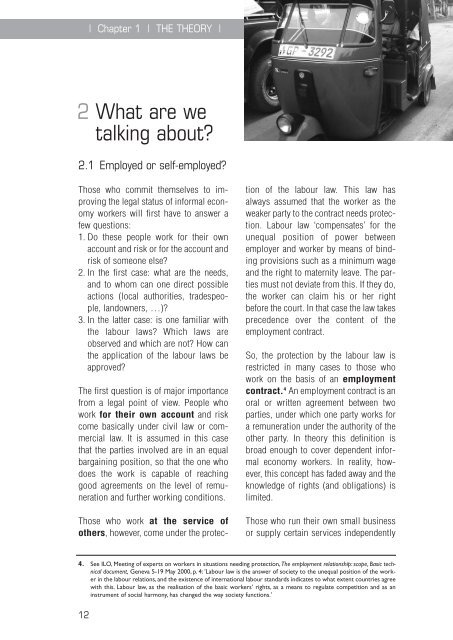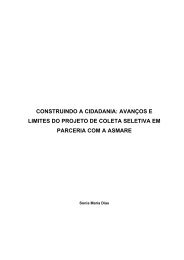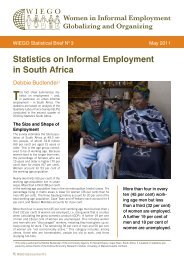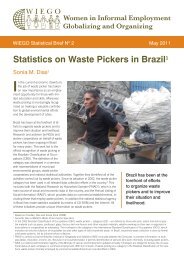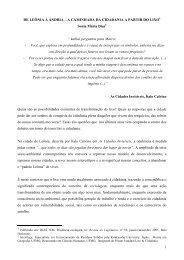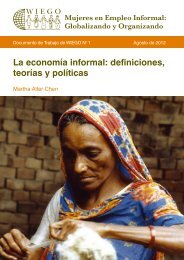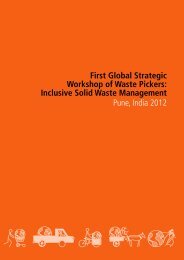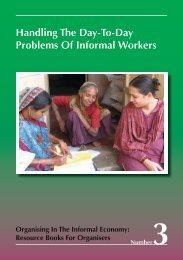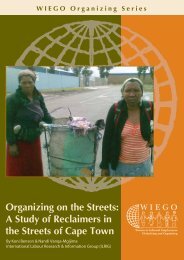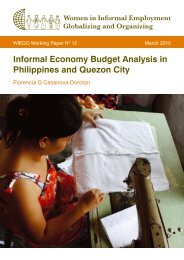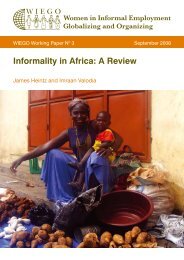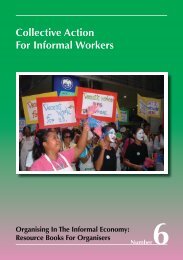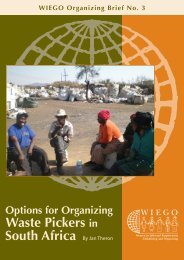Ten Trade Union Actions - Inclusive Cities
Ten Trade Union Actions - Inclusive Cities
Ten Trade Union Actions - Inclusive Cities
Create successful ePaper yourself
Turn your PDF publications into a flip-book with our unique Google optimized e-Paper software.
| Chapter 1 | THE THEORY |2 What are wetalking about?2.1 Employed or self-employed?Those who commit themselves to improvingthe legal status of informal economyworkers will first have to answer afew questions:1. Do these people work for their ownaccount and risk or for the account andrisk of someone else?2. In the first case: what are the needs,and to whom can one direct possibleactions (local authorities, tradespeople,landowners, …)?3. In the latter case: is one familiar withthe labour laws? Which laws areobserved and which are not? How canthe application of the labour laws beapproved?The first question is of major importancefrom a legal point of view. People whowork for their own account and riskcome basically under civil law or commerciallaw. It is assumed in this casethat the parties involved are in an equalbargaining position, so that the one whodoes the work is capable of reachinggood agreements on the level of remunerationand further working conditions.Those who work at the service ofothers, however, come under the protectionof the labour law. This law hasalways assumed that the worker as theweaker party to the contract needs protection.Labour law ‘compensates’ for theunequal position of power betweenemployer and worker by means of bindingprovisions such as a minimum wageand the right to maternity leave. The partiesmust not deviate from this. If they do,the worker can claim his or her rightbefore the court. In that case the law takesprecedence over the content of theemployment contract.So, the protection by the labour law isrestricted in many cases to those whowork on the basis of an employmentcontract. 4 An employment contract is anoral or written agreement between twoparties, under which one party works fora remuneration under the authority of theother party. In theory this definition isbroad enough to cover dependent informaleconomy workers. In reality, however,this concept has faded away and theknowledge of rights (and obligations) islimited.Those who run their own small businessor supply certain services independently4. See ILO, Meeting of experts on workers in situations needing protection, The employment relationship: scope, Basic technicaldocument, Geneva 5-19 May 2000, p. 4: 'Labour law is the answer of society to the unequal position of the workerin the labour relations, and the existence of international labour standards indicates to what extent countries agreewith this. Labour law, as the realisation of the basic workers’ rights, as a means to regulate competition and as aninstrument of social harmony, has changed the way society functions.'12


